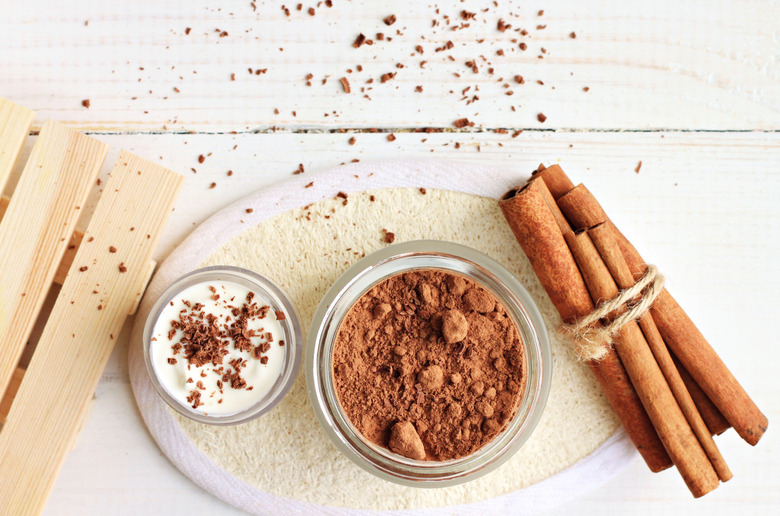You Might Be Buying The Wrong Cinnamon
Cinnamon, the hallmark scent and spice of fall, is really, really good for you. It's been known to rev metabolisms, lower heart disease risk, and balance blood sugar. These benefits and more have given us reason to sprinkle it all over our lattes, desserts, and Christmas dinner dishes for ages, livening up the coziest of treats.
However, it seems there are two classes of cinnamon being sold — and that one might be way healthier than the other.
The two types are called Ceylon and cassia. Ceylon is grown in Sri Lanka and is considerably more expensive than the commonplace cassia cinnamon you're likely buying in stores. Cassia cinnamon is the more strongly flavored of the two, so it's understandable that supermarkets flock to this cheaper, tastier option.
But studies now imply that you should do your best to buy the alternative type of cinnamon, instead: the Ceylon.
Cassia cinnamon often contains high concentrations of coumarin, a plant compound that has been known to cause liver damage and possess carcinogenic qualities. The thin layers of the more expensive Ceylon cinnamon carry 18 times less of the dangerous compound.
This discrepancy has caused considerable confusion for medical researchers investigating the health effects of cinnamon, as well. Many studies have overlooked the bifurcated nature of the spice, investigating both Ceylon and cassia cinnamon as one mutual substance. Therefore, some confusion has arisen: Is Ceylon cinnamon the only kind with health benefits? If so, people are sprinkling a whole lot of useless dust on their food and drink by buying cheap cinnamon from grocery stores.
There haven't been definitive studies to piece together whether or not cassia cinnamon comes with any of the same health benefits. But with the potentially carcinogenic qualities of the cheaper version, we definitely think that cinnamon is a product worth splurging on.
